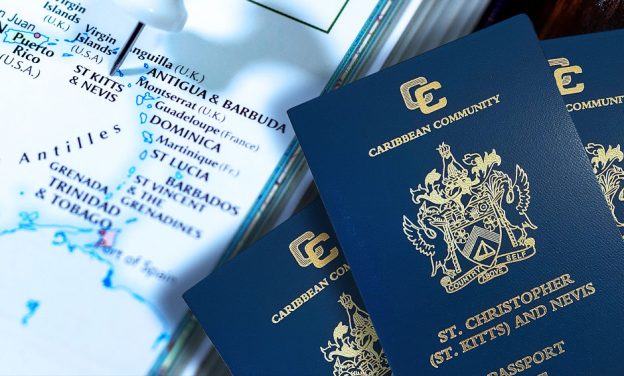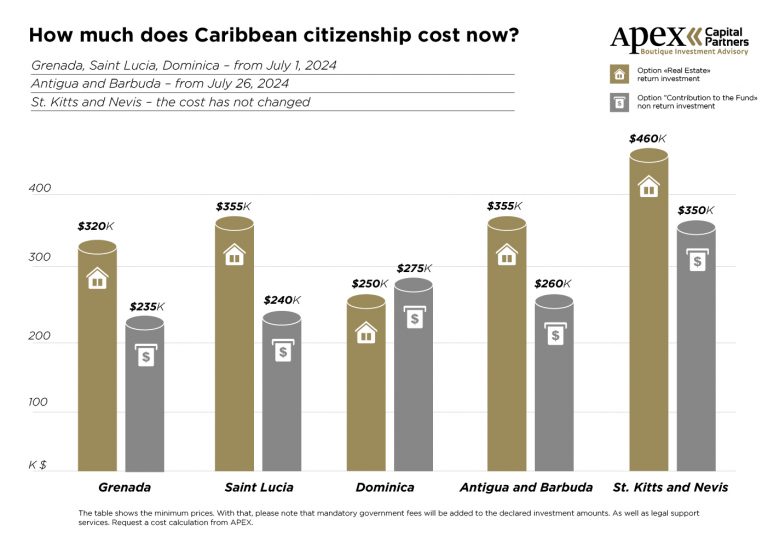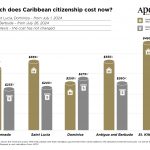In the last weeks of March 2022, a new milestone was outlined for the Investment Citizenship program industry. It is now that the European Parliament is doing everything possible to put maximum pressure on investment citizenship programs.

Nuri Katz, Founder and owner of Apex Capital Partners, gives his professional opinion upon situation, as an investment immigration expert with 30 years of experience.
The last few weeks have been among the most – if not the most – significant weeks in the investment citizenship industry since European visa-free travel was awarded to St. Kitts and Nevis in 2009. The decision of the European Parliament to begin a process of applying maximum pressure on CBI countries to close their programs was of utmost importance.
Moreover, the swift decision by the Caribbean CIP countries to put a “pause” on accepting Russian applications for citizenship was possibly even more of a foreshadowing decision showing us what is to come. Combined, these two events have shown us that unless something changes drastically, we are closer to the end of the CBI industry than to the beginning of it.
The nearly instantaneous decision and, even more so, the reason for the decision to pause accepting of Russian CBI applicants is alarming and foretelling. I do not want to get into the conversation as to the war in Ukraine but, honestly, I do think that the reason for the war, or the war itself, is not the reason for the decision to ban Russians from Caribbean CIPs.
The sanctions imposed on Russia by the US, EU, and the UK, moreover, are not the reason either. The reason was simply the pressure brought to bear, that was so easily and seamlessly adhered to by all.
The reason for banning Russians from CBI was almost as illogical as most of the sanctions that are being brought against Russia. As we know from experience, in Cuba for the last nearly 60 years, in Iran for over 40 years, and in North Korea, international sanctions do not in any way change regime behavior and, as such, they clearly do not work. Well, actually, they are a failure everywhere.
There is no reason to believe that the situation will be any different with Russia this time. Be that as it may, the sanctions themselves do not call in any way for countries or individuals to stop dealing with non-sanctioned Russian people or institutions. The sanctions cover a very limited group of people: Fewer than 1,000 out of 140 million Russians are actually sanctioned.

The targeted discrimination of ordinary Russians
The banking sanctions are very clear as well: They cover seven major banks in Russia but not the hundreds of other banks that continue to this day to function normally and trade internationally.
Certainly, the sanctions do not call for countries to stop awarding citizenship or accepting investments from any of the over 140 Million regular Russians who are not sanctioned but who are being victimized because they were born in a certain country to certain parents. We see the anti-Russian hysteria on display in all sorts of ways: As an example, just a couple of days ago an American citizen flying from New York to Dubai on his private plane had his plane arrested on a stopover in the UK because his name sounded Russian.
There are many more examples from around the world of ordinary Russians being mistreated, having bank accounts closed, or funds blocked just because they are Russians and despite sanctions having absolutely nothing to do with them.
As regards CBI applicants, while it could be that a sanctioned person would have tried to apply for citizenship, clearly the robust due diligence done by all CBI countries would have picked up on those people and they would not have had anything close to a chance of being awarded citizenship. Furthermore, no citizenship agent would be able to work or accept funds from such a person in any case as it would simply be nearly impossible for a sanctioned person to come close to even applying.
Certain stakeholders, however, decided that ordinary Russians, most of whom own or work at small or medium-sized businesses, should not be allowed to apply for citizenship. While it has nothing to do with sanctions, certain stakeholders informed the CBI countries that they specifically do not want Russians (whether or not they agree with Russian government actions) to be allowed to invest in their freedom.
Why these stakeholders – who allow for most Russians to use the international banking system, including for Citibank to act as a paying agent for coupon payments on Russian government bonds – do not want Russians investing in the Caribbean is beyond me. But the fact is that phone calls were made and pressure was brought to bear and the Caribbean, again, had to step back and give up much-needed investments that are often critical for the functioning of their countries.

The EU wants to kill CBI – and doesn’t care how the job gets done
It is very scary and foreboding how quickly the governments decided to ban Russians. We clearly see that when small developing countries are pressured by powerful stakeholders, they have no choice but to buckle under the pressure immediately. This is an important lesson to learn as it brings us back to the consequences of the European Parliament vote of a few weeks ago.
The European Parliament on March 9, 2022, voted to ask the European Commission to prepare a legislative proposal that would call for the banning of CBI programs around the world. While the process of coming up with this legislative proposal can take years, and voting on it can take even longer, this vote has had a very sobering effect on the CBI industry. It is clear that Europe does not want CBIs to exist at all and is looking for ways to close them down. Though legislatively we are still very far away from this call to close CBI, we can now see that Europe will pressure CBI countries to close down. If we look at the example of what happened with the Russians, we can clearly see that, if pressure is brought to bear, the Caribbean will be forced to give up so much and perhaps very quickly.
It is still not too late to try to avoid the scenario whereby all CBI countries close their programs. There is still time to maneuver, for all stakeholders in the CBI space to come together and help educate the EU about the programs and the incredible safeguards in place within them. It is still not too late to let the EU know how important these funds are for CBI countries.
Most of all, it is not too late to explain that the due diligence done on CBI candidates by the Caribbean countries is the best due diligence of any immigration program of any country around the world, including the US, Canada, and the UK.
The effort must be made now because time is of the essence. Previous efforts have been unsuccessful. It is time to re-group and combine the efforts of governments, agents, due diligence companies, and other stakeholders and face the matter directly. Because if this does not happen, the days of CBI are clearly numbered.
This is a time of both danger and opportunity for the industry. We can become better and stronger, or the industry can close down. It is up to us, and it is up to us now.
Will we rise to the challenge?
Source: IMIdaily










